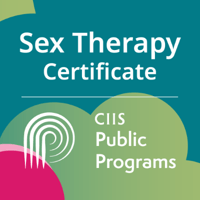Healthy choices create healthy relationships. Couples counseling is one of those healthy choices. Your relationship doesn’t have to reach a breaking point to require therapy, but there are some telltale signs to be aware of if you’re unsure about the need for professional support.
Read on for five signs that should prompt you to consider starting couples therapy.
1. You feel disconnected
There are so many factors that can stand in the way of connecting with your partner. They present in both physical and emotional forms. Maybe you’re balancing full-time jobs with the demands of parenting or people-pleasing everybody in your life except for your partner? Time passes and conflicts get swept to the side. Before you know it, you’re looking at a pile of built up resentments from daily annoyances, unmet needs, and unresolved trauma. You get so lost in the tides of life that it can feel almost impossible to find your way back to one another. Therapy can allow you to make space for reconnection, plus having sessions built into your calendar can help things flow a bit better and stop the usual life stuff from getting in between you.
2. Lack of intimacy
When we hear lack of intimacy, our minds immediately go to “lack of sex.” Sex is a significant aspect of intimacy, but that’s not all there is to it! Being intimate with one another can include sharing vulnerable feelings, affection, and sensuality. It can be awkward or embarrassing to bring these feelings up with a partner, but being able to communicate is an essential part of building intimacy. A therapist can help you open up together in a safe and constructive way.
3. Avoiding conflict
Let’s face it: nobody wants conflict, but sometimes we need it. If handled with care, conflicts are part of a healthy relationship. Bottling up your feelings and opinions is a surefire way to build resentment, passive-aggressive behavioral patterns, and people-pleasing cycles. Over time, this will severely break down the connection in the relationship.
4. Secrets
Secrets are a common source of disconnection, defensiveness, and resistance. If you find yourself keeping secrets from your partner or learn that your partner is hiding things from you, it’s necessary to understand the root in order to work together towards a resolution. Whether it’s based in fear, manipulation, and/or control – a professional and objective perspective will be useful to recourse the relationship after experiencing this kind of betrayal.
5. Transitional milestones
Major life changes, such as getting married or starting a family, can bring insecurities straight to the surface. The expectations that come along with a substantial lifestyle shift are often just as big as the shift itself. Openly sharing your expectations, dreams and fears in a therapeutic setting is a great way to approach these moments and grow through them with ease.
Is couples counseling right for you?
Remember, your relationship is like a living being that has to be nurtured in order to evolve and grow as you do. We often treat relationships as though they’re an accomplishment that has to be perfect in order for us to feel secure about. In reality, relationships are extensions of ourselves. Couples counseling can be a productive and beneficial way to care for your relationship. It’s a choice that proves your love and commitment rather than it suggests a lack of it. Choose your relationship.





